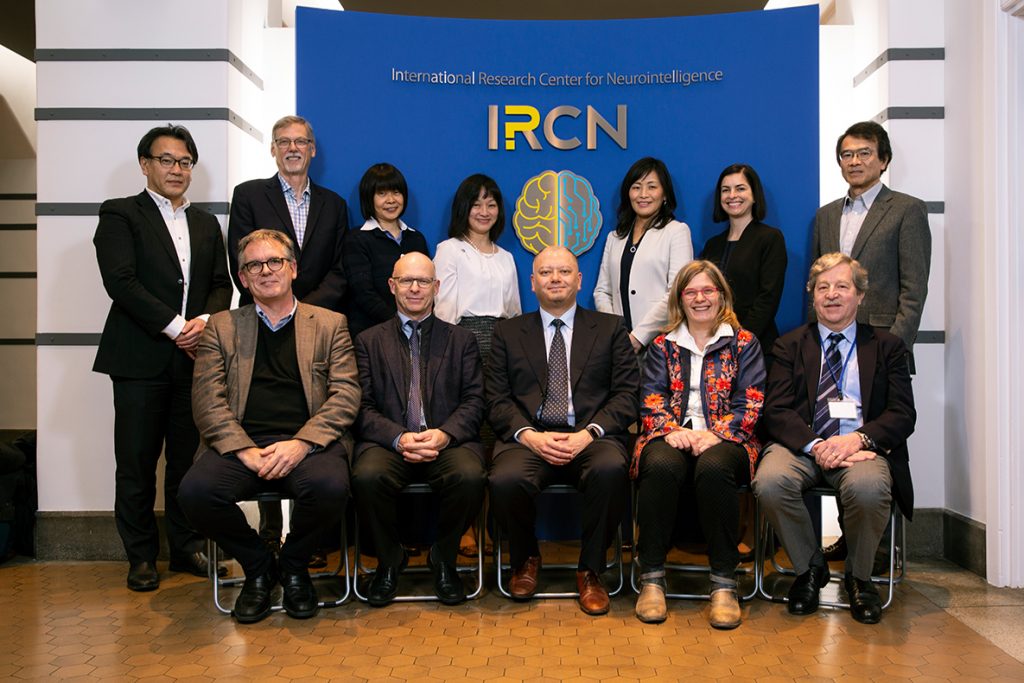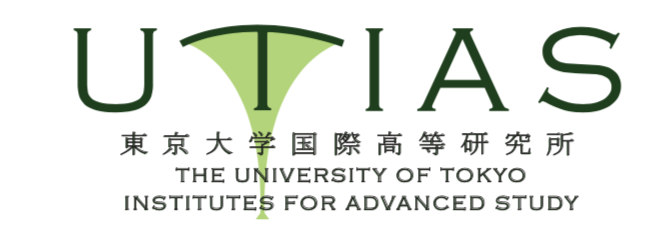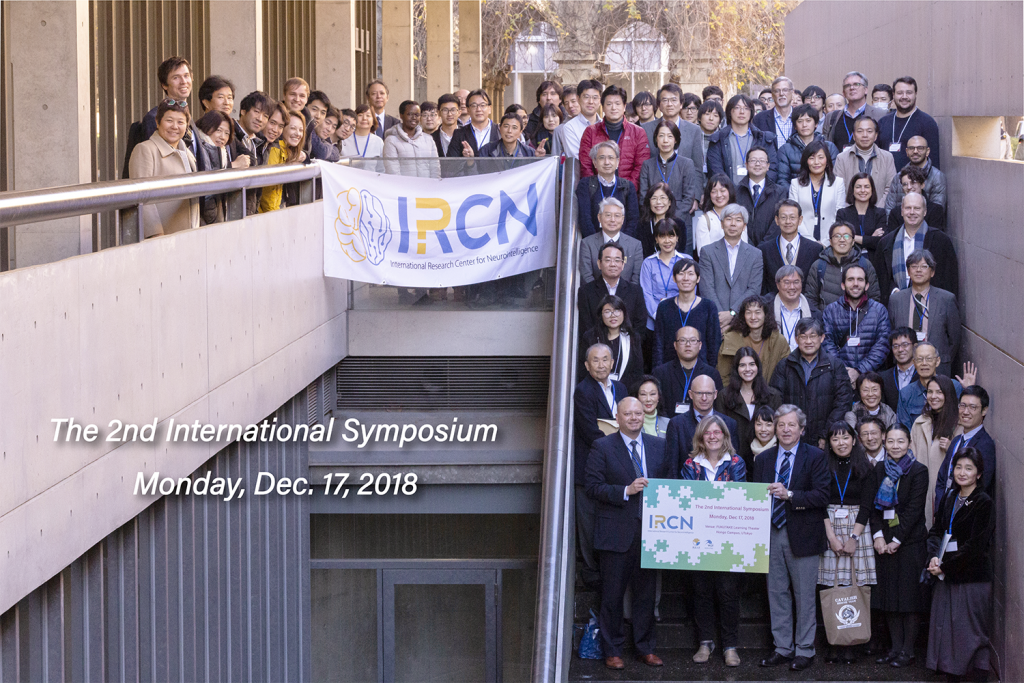
On December 17, 2018, IRCN held an international symposium at Fukutake Hall. Over 150 attendees heard talks from internationally renowned researchers at the interface of neuroscience with computational and clinical fields.
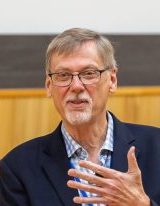 |
 |
 |
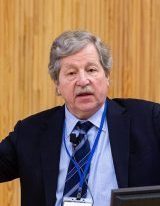 |
| David Fitzpatrick | Ghislaine Dehaene-Lambertz | Yukiko Gotoh | Charles Nelson |
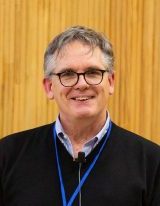 |
 |
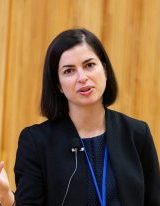 |
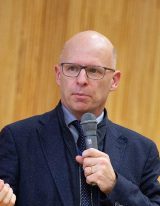 |
| David Poeppel | Yukie Nagai | Genevieve Konopka | Stanislas Dehaene |
In the morning session, David Fitzpatrick, Director of the Max-Planck-Florida Institute, an IRCN partner, presented exciting results on the subcellular functional architecture of cortical neurons that respond to visual stimuli. It is likely that these activity patterns can be decoded and modeled in future studies. Ghislaine Dehaene-Lambertz introduced work on child language development at the French INSERM unit on cognitive neuroimaging.
Yukiko Gotoh, Professor of Pharmaceutical Sciences and IRCN Principal Investigator at the University of Tokyo showed how combinations of molecular signaling pathways in stem cell development produce a diverse nervous system. In a fascinating lecture, Charles Nelson from Harvard Medical School and Boston Children’s Hospital talked about studies on the psychosocial development of children raised under adverse conditions.
The afternoon session started with a talk by David Poeppel, Co-Director of Max-Planck Frankfort and New York University on brain auditory responses in speech patterns and neural oscillations that track their content. Yukie Nagai of NICT-Osaka presented her recent work on computer-driven social robots and autism environment simulators. Her findings have major implications for how brain science can inspire technological tools.
Genevieve Konopka of the University of Texas Southwestern Medical School presented remarkable results that showed how patterns of brain activity patterns and gene expression could correlate, and the role of genes networks in human cognition. Lastly, Stanislas Dehaene reported his studies of the human singularity, the unique ability of humans to learn language and complex cognition exceeding that of other animals.
With this symposium the IRCN continues its mission to build a new research field at the intersection of neuroscience, computer science, clinical/social sciences, and technological development. IRCN Director Takao Hensch encouraged continued dialogue of the local community at the University of Tokyo with global partners to build cooperative pillars for scientific progress. Societal interactions will also contribute to the center’s mission.
